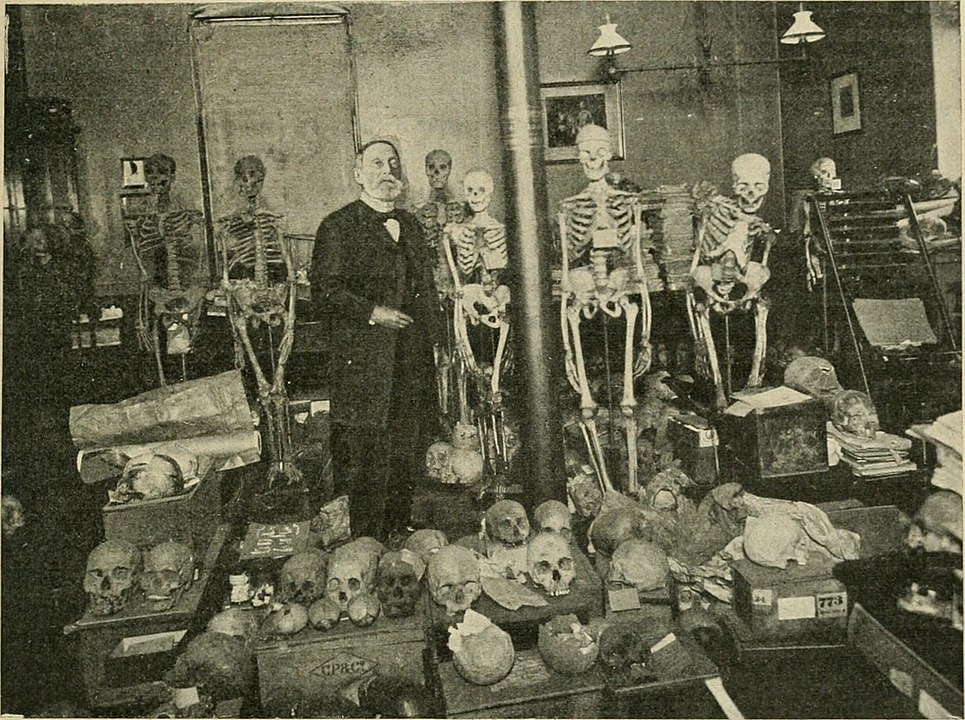Human Remains

Many German tourists visiting Tanzania are amazed by the numerous well-preserved gravesites of German colonialists in the country. Although many of them acted as brutal colonial masters and sometimes committed serious war crimes, most of their graves are tended and cherished. The Volksbund Deutsche Kriegsgräberfürsorge e.V. is also committed to their preservation.
In scandalous contrast to this stands the treatment of the ancestors of Tanzanians in Germany. For racist researches dead or murdered people or their body parts were abducted in large numbers and shipped to the German Empire 100 years ago. Since then, their bones have been packed in cardboard boxes in the collection shelves of local museums and universities. Some of them are still misused today for exhibitions as well as for teaching and research purposes.
Only recently, the state foundation Prussian Cultural Heritage (SPK) was the first German institution to officially announce how many ancestors from the former colony “Deutsch-Ostafrika” (German East Africa) were abducted to its Ethnological Museum. The foundation has also finally declared itself willing to return them. We regard this announcement as a major step on the way to the overdue repatriation, for which we have been campaigning for more than a decade.
After all, our first major initiative for the return of ancestors looted in “Deutsch-Ostafrika” dates back to the 100th anniversary of the Maji-Maji war in 2005-07. Together with other NGOs in Germany, we called on the German government at that time in a public resolution for their immediate release. But despite all promises and promises, almost nothing has happened since then: until today not a single ancestor has returned to Tanzania.
Only now, after years of intransparency, the world learns that the SPK has hundreds of East African people in its depot. 264 come from Tanzania. From Rwanda there are even over 900 individuals! Hundreds more, as much as we have had to find out for the most part ourselves, lie in the numerous other German collections in Leipzig, Dresden, Göttingen, Freiburg, Cologne. Museums in France and the USA also have East Africans* or their body parts in their depots.
Unfortunately, we still do not know exactly where the remains of the Prussian Cultural Heritage Foundation come from, because the SPK consistently refuses to hand over the results of its research to us. It is still not willing to show us the lists of ancestors whose bones were abducted. It took an opposition inquiry in the Bundestag to find out from the German government that members of no less than 17 East African communities can be found in the Berlin depots. Affected are Wabondei, Wachagga, Wadigo, Wahehe, Wamassai, Wamwera, Wandonde, Wangindo, Wapare, Wasandawi, Wasambaa, Waswahili, Wanyaturu, Watutsi, Watwa, Wagogo and the Wakinga.
Lately we have often heard from Germans that they would not bear any guilt for the crimes of their ancestors more than 100 years ago. We can fully agree with this. But this is not about personal guilt or innocence. This is about the willingness of the Federal Republic of Germany, its federal states and also of their citizens to take over responsibility for historically caused injustice in the present. It is about ending persistent colonial conditions. East Africa’s stolen ancestors must be returned as quickly as possible so that they – and their descendants – can finally find peace!
Media Review
Die Zeit, 7.03.2018 “Hundert Glasperlen für einen Kopf”
Deutsche Welle, 6.04.2018 “Skulls and bones: A dark secret of German colonialism”
Migazin, 26.03.2019 “Unrechtmäßig erworbene Artefakte aus Kolonialzeit sollen zurück”
Süddeutsche Zeitung, 5.02.2020 “Ein Saurier und die Folgen”
Mai 2018: „Unter Kannibalen“
Beitrag von Mnyaka Sururu Mboro & Christian Kopp zum Tagungsband Unmittelbarer Umgang mit menschlichen Überresten in Museen und Universitätssammlungen, S. 35ff
2019: Working Paper; Human Remains in deutschen Sammlungen
Juli 2019: Antwort der Bundesregierung auf eine Kleine Anfrage von B90/Die Grünen
1.2.2020: “Unter moralischen Gesichtspunkten hätten diese Schädel nie hierhergebracht werden dürfen“, Stiftung Preussischer Kulturbesitz im Gespräch mit DPA
